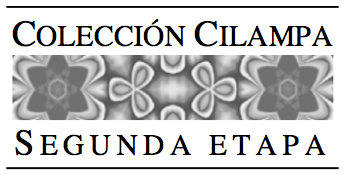Humorism, the Culture of Laughter
DOI:
https://doi.org/10.15359/rl.2-68.1Keywords:
laughter, humor, grotesque, traditional symbolism, Mikhail Bakhtin, Wolfgang KayserAbstract
Aesthetic categories are usually imprecise, but much more so are those revolving around the concept of laughter or humor. This imprecision has several causes: The first is the failure to consider types of communication previous to that of oral language. The second is to impose a unique — joyful and liberating — meaning on humorous phenomena. And a third error is to suppose that laughter is an exception in a context of seriousness. Seriousness would be natural and laughter exceptional. These problems entail the need for a unitary and primordial categorization, which accounts for the great evolution of cultural phenomena and the split between popular culture and wise culture. From the concept of grotesque, this article addresses the scope of the phenomena of laughter in the context of the great cultural evolution of humanity.
References
Ayuso de Vicente, María Victoria y otros. Diccionario Akal de términos literarios. Madrid: Akal, 1990.
Bajtín, Mijail. La cultura popular en la Edad Media y en el Renacimiento. El contexto de François Rabelais. Barcelona: Barral, 1974.
Bajtín, Mijail. Teoría y estética de la novela. Madrid: Taurus, 1989.
Estébanez Calderón, Demetrio. Diccionario de términos literarios. Madrid: Alianza, 2000.
Kayser, Wolfgang. Lo grotesco: su realización en literatura y pintura. Madrid: Antonio Machado, 2010.
Moisés, Massaud. Dicionário de términos literários. Sao Paulo: Cultrix, 2004.
Ortíz-Osés, Andrés, ed., Diccionario de hermenéutica. Bilbao: Universidad de Deusto, 2004.
Souriau, Étienne, Diccionario de estética. Trad. I. Grassa y otros. Madrid: Akal, 2010.
Downloads
Published
How to Cite
Issue
Section
License
Principios básicos:
a) Los autores conservarán los derechos de propiedad intelectual de sus aportes o artículos;
b) Cada autor deberá indicar expresamente que ese artículo lo entrega, en calidad de exclusividad, a la revista LETRAS; y
c) La revista Letras se reservará el derecho de autorizar para fines académicos no lucrativos la reproducción y uso de ese material por parte de terceros, siempre que éstos indiquen expresamente la procedencia del artículo. Todo ello se postula en concordancia con la normativa de "Creative Commons Atribution License", recomendada.

This work is licensed under a Creative Commons Attribution-NonCommercial-NoDerivs 3.0 Costa Rica License.















